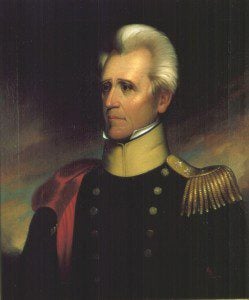The other day, I was talking to my students about how the press has been giving Pope Francis very positive coverage. We hear often about phone calls he makes to a grieving, troubled people, or about his latest rejection of the costly privileges of the papacy. Facebook lights up with photos of the pope embracing disabled people, or indulging the antics of children. We’re still in the honeymoon phase with this pope and the press and average Americans, no doubt, will grow more critical of the current pontiff. Still, it’s interesting that we’re so willing, even eager to embrace this pope. Of course, a lot of this has to do with Pope Francis’ personality. He seems to be a personable, affable, and genuine man. And he appears intent on cleaning up corruption in the Vatican bureaucracy and dealing with the systemic stagnation that created the sexual abuse crisis in the church.
Still, I wonder if it also demonstrates a more general and ambivalent fascination that non-Catholic Americans have with Catholicism. I write and teach often about anti-Catholic strains that sit deep in U.S. culture. It has, for instance, incited violence against Irish immigrants in the nineteenth century and is, perhaps, even the structural ancestor of anti-Mormon, anti-communist, and anti-Islamic rhetoric (to name just a few “antis”). But Americans are also fascinated with Catholicism and Catholic culture and have embraced selected aspects of this culture. In explaining the outsized influence of Cardinal Mundelein, Edward Kantowitz argues that Americans love a good show. Despite a long Protestant heritage critical of extravagance and showy rituals, American culture also embraces exuberant displays of wealth, architecture, and entertainment and Catholicism has a long tradition of exuberant, aesthetically rich religious expression in its architecture, ritual, and art. Leigh Eric Schmidt writes eloquently about how, for instance, the Easter Parade tradition developed from a potent combination of burgeoning consumerism, fascination with high church (i.e., Catholic and Episcopalian) rituals, and celebratory social parading.
I wonder where this fascination comes from. Is it simply that humans are universally captured by visual, sensuous experiences? Is it, as Schmidt suggests, a harkening back to festive aspects of medieval culture that couldn’t be suppressed forever by Protestant strictures against worldiness? Is it partly the product of the consumerism and mass popular culture that developed at the end of the nineteenth century as America’s capitalist, industrialized economy matured? Have the capitalist economic structures of the U.S., a capitalism that Max Weber suggests was fueled by the Calvinist Reformation, now, ironically, created a culture where Americans embrace the very exuberance and extravagance that Calvinists railed against?
I’m not alone in also noticing that Americans have a complicated relationship with hierarchical authority figures. The British royalty generates huge interest and revenue in the U.S. For non-Catholics, the pope seems to elicit similar, if less intense interest. Of course, in both cases of British royalty and the pope, these are authority figures who are located outside of the country and have little to no direct power over Americans. They can be safely idolized and idealized because they are, ultimately, non-threatening. But I wonder if the fascination with the pope also partly resides in a profound cultural longing for a single, unifying religious leader who can give clear answers and serve as an idealized example of how to live a good, moral life. American history is rife with examples of religious leaders to whom Americans looked for solace and advice: Anne Hutchinson, George Whitefield, Ann Lee, Joseph Smith, Swami Vivekananda, Billy Sunday, Martin Luther King, Jr. The list goes on and on and crosses traditions and times. I wonder if the papacy (in its modern incarnation at least) has a special resonance in American culture because the office and person is so carefully and deliberately separated from the pitfalls of everyday life that have been stumbling blocks for other American religious leaders: sex, rivals, divesting followers of money. A pope leaves behind his old self, takes a new name, becomes the office. And I wonder if the current pope holds particular fascination for Americans because he seems to combine in one person all of these ambivalent and contradictory strains in American culture: rejection of extravagance, fascination with ritual and show, and longing for an ideal religious leader.











